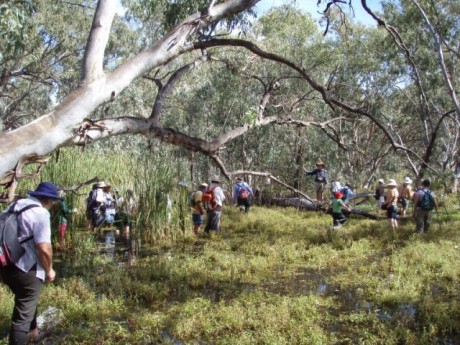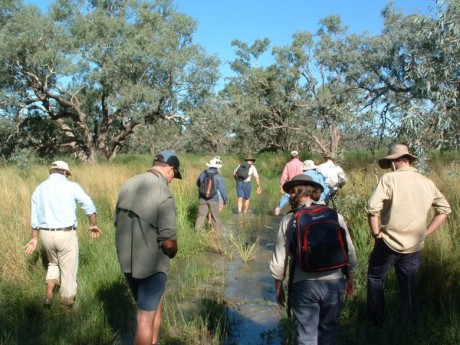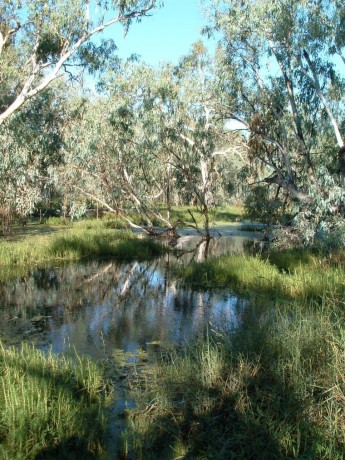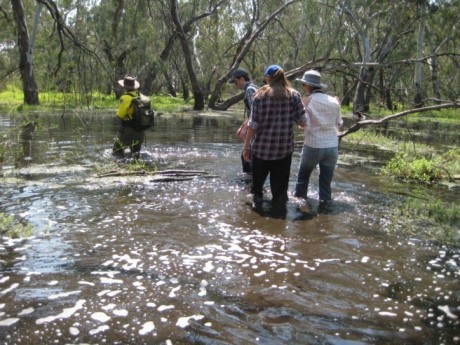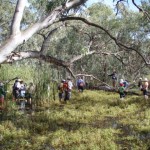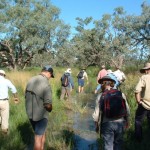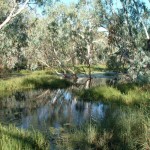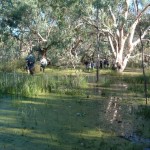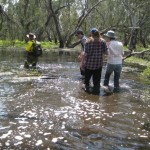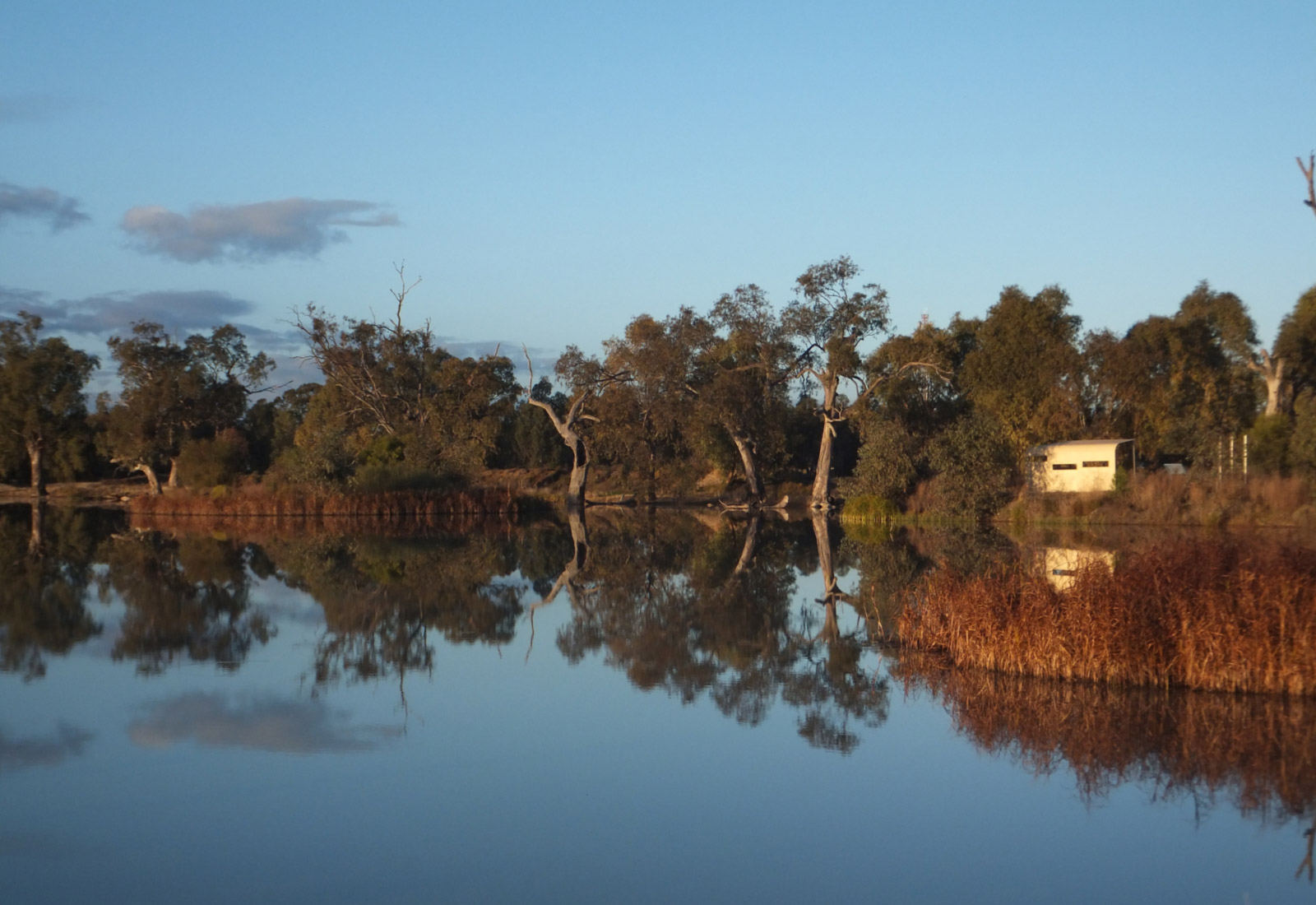

The Macquarie Marshes Nature Reserve and State Conservation Area totals 21,898 hectares and is managed by the NSW National Parks and Wildlife Service. The nature reserve is separated into two areas, the north and south marsh. The remaining 90% of the Macquarie Marshes is mainly private land managed for agricultural purposes.
Summer 2010/11 saw the largest flood in the Macquarie Marshes for 10 years and resulted in the best waterbird breeding event for 10 years with more than 70,000 Ibis and 40,000 Egrets, Cormorants, Darter, and Night herons successfully breeding in the marshes.
Flood levels and waterbird breeding during this summer, 2011/12, have been moderate but those areas of wetland vegetation that have received flows for a second year in succession are now in excellent condition. There are still plenty of waterbirds about that can be seen from the Gibson’s Way including Magpie Geese, Swans, Ducks, Grebes etc.
The Macquarie Marshes are a dynamic system, experiencing wet and dry cycles, each equally interesting in their own way.
During a wet cycle, if conditions are suitable, thousands of birds flock to the area to breed. Large expanses of open water interspersed with various vegetation types make for an extremely diverse and biologically rich area. Unfortunately, access during flooding is problematic. For example, Gibson’s Way, the only road that crosses the marsh, becomes impassable.
The Macquarie Marshes are also worth visiting during a dry cycle where bush birds abound and River red gum forests are more accessible. A “dry” marsh also helps visitors understand the dynamic nature of wetlands and their reliance on natural cycles to sustain themselves.
There are a number of ways you can experience the Macquarie Marshes. A simple drive along Gibson’s Way is a good way to start and for many people provides a good introduction to the Macquarie Marshes. There is an Observation Platform along Gibson Way near the Terrigal Creek (this is also described separately in the web site), which enables visitors to get an elevated view of the wetlands and the diverse fauna they support.
The Macquarie Marshes Nature Reserve is surrounded by private land and as such, is not generally accessible to the public. However, a NPWS Discovery Weekend is often held once a year where NPWS staff and local NPWS Discovery Rangers take members of the public on guided walks and tours. This is usually held on the Labour Day long weekend in October of each year and is subject to weather conditions.
NPWS Discovery walks and tours can also be organised at other times of the year. These are run on a cost recovery basis and cost $180 per group for a half day and $300 per group for a full day, eg for a full day Discovery activity for a group of 10 people it would cost $24 each or for a group of 3 people it would cost $80 each. Group size is limited to 20 people.
From Warren, take the road to Carinda. The Southern Nature Reserve is about 80-85 kilometres along this road. The Northern Nature Reserve is further along the road ot Carinda. See map on our website.
Telephone – (02) 68254364 at the Warrumbungle National Park Visitor Centre
See above.
Willie Retreat, Observation Platform on Gibson’s way, Tiger Bay Wetland and Macquarie Caravan Park in Warren.
